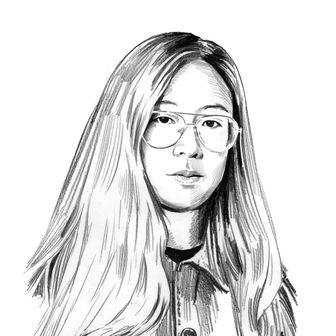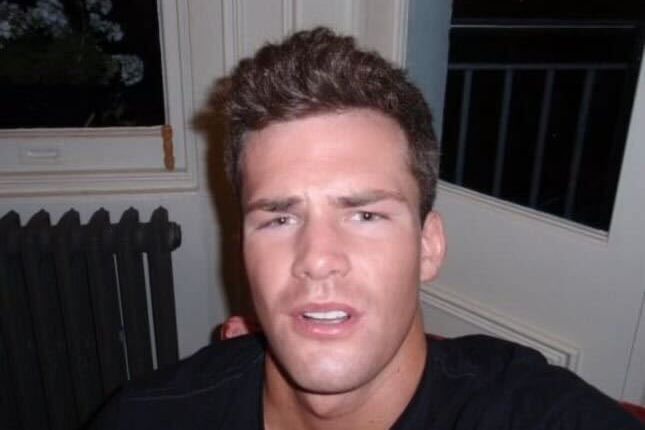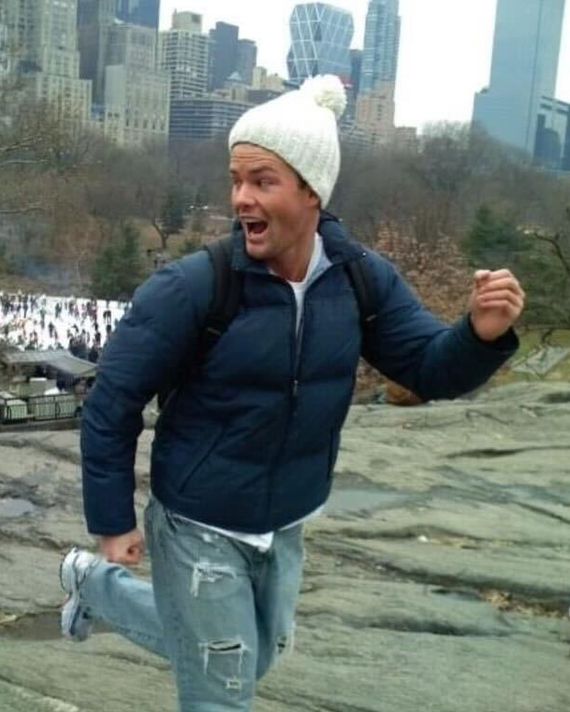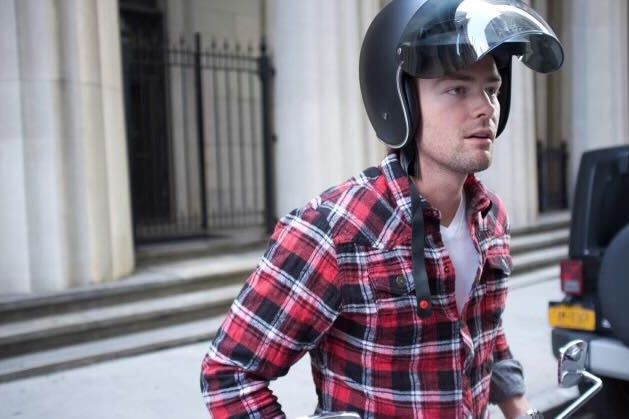
Before Ryan Serhant was SERHANT, he was a hand model for AT&T, a bit player on As the World Turns, and a flyer guy for Equinox on 63rd and Lexington. Ahead of the premiere of Owning Manhattan, Serhant’s latest spin as a reality star, we talked to him about his early days in the city, life before real estate, and sharing an Upper East Side one-bedroom with two roommates.
I was born in Texas, I grew up in Boston, and I went to college in upstate New York. I was an English literature and theater double major at Hamilton. I knew I always wanted to try acting, and I’d rather regret the things I did than the things I never tried. So I thought, You know what? I’ve got some construction job money saved up, I’m going to go to New York and give it my best shot and see if I can make a living as an actor. And that’s what I did.
In the summer of 2006, I moved into a one-bedroom on East 66th Street across from a Dunkin’ Donuts that I’m pretty sure is still there that me and two roommates converted into a three-bedroom. Both of my roommates I knew from college and were paralegals — one for the DA and one for Cadwalader, Wickersham & Taft, a big corporate law firm. That roommate had a real job, so he paid for the actual bedroom in our one-bedroom. We put up a pressurized wall in the kitchen, and the guy working for the DA had half the kitchen that fit like a twin bed, and then I had half the living room. We had one bathroom, and it was fine. It was $3,600 a month for that apartment. Two weeks later, someone pretending to be UPS came in and broke into our apartment and stole our computers. That was a rude awakening into New York City.
I gave myself two years to not have a survival job because I didn’t want to become a waiter or bartender. I knew if I came and my plan A was kind of already my plan B, then before I’d know it, ten years would go by and then 20 years would go by. So I put myself in a tricky financial position and had to make it work. I remember my dad telling me, “If you’re going to go to New York City, the most expensive city in the United States, and you’re going to go there with no job, then you have to work harder than your two roommates.” So I did auditions all day long. I did Actors’ Equity auditions, which is the theater union, every day. You go to Times Square at 6 a.m. and you’d stand and you’d wait to be seen. Both of my roommates were up at six and had to be in the office by seven, so it was like, Okay, that’s what I’m going to do too. I’d wake up before they did and go to bed after they did.
While I was doing free theater and some regional theater, I did odd paying jobs as an actor. I started hand modeling for AT&T, which paid me $150 per hour. I was a flyer guy — I passed out flyers at the F train station on 63rd and Lexington for Equinox so I could work out for free. My first job job here was InTurn, which was an internet reality-TV show to find the next soap-opera star for As the World Turns. I won and I got onto As the World Turns as Dr. Evan Walsh IV. It would shoot at JC Studios in deep Brooklyn. Then they killed me. I got a script one day that said, “Evan Walsh IV takes a syringe to the heart by his grandmother, Lucinda Walsh.”
One of the last shows that I did where I was like, I might need to get a job now, was at the Daryl Roth Union Square Theatre that was a reimagination of Edgar Allan Poe. My friends came and saw me, and they were like, dude, because I played a clock. My hands were the arms of the clock. We just did our Owning Manhattan premiere party, and to this day, my friends will come and they’ll be like, “Man, you’ve come a long way from doing ticktock, ticktock for an hour.”
I was a theater nerd, so I spent a lot of my time on Restaurant Row. My roommates and I would do the classic postgrad thing and go to Brother Jimmy’s in Murray Hill, or Fiddlesticks. But I don’t really drink, and my No. 1 goal was to make the cash I had in the bank last as long as I possibly could, so I was like, “I can’t go out at night.” I would go to theaters and see Off Broadway shows. Or I would save my money and I would see every movie. And what was cool for me about being in the city was for the first time in my life, I could go and see a new play or an independent film or a new art exhibit and meet cool people every day.
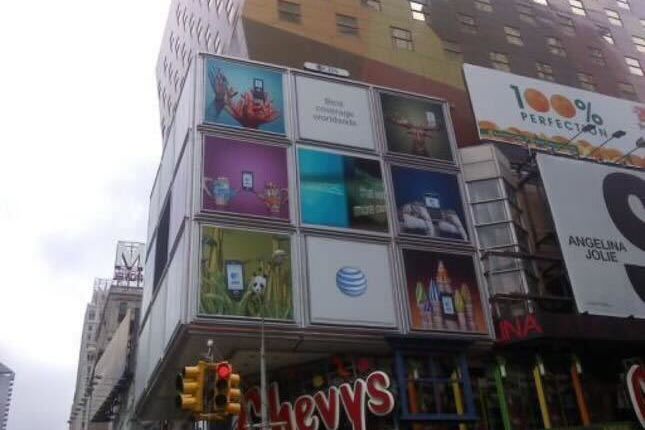
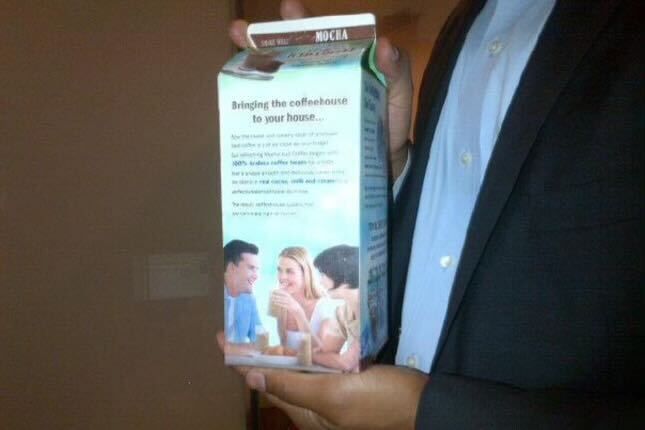
I also had no idea how expensive a sandwich was in New York City. I cooked — for breakfast, I’d have tofu and yogurt. For dinner, I’d have chicken breasts, rice, and broccoli. I would just cook them on Sundays and I’d try to make the money last as long as I possibly could. Then I totally ran out of money in the summer of 2008, and a friend said, “Don’t move home, get your real-estate license.” I got my real-estate license on the day that the Lehman Brothers filed for bankruptcy. But my goal wasn’t to be a real-estate broker; it was just to make $2,000 a month so I could pay my rent.
It was hard. I think I mentally quit New York and moved out numerous times. There are definitely easier places to live. But I think I’ve always understood risk-reward. There’s a lot of risk living in New York, but there’s also a lot of reward. I just knew that there was a lot that was possible here. I made it work. I remember in the winter of 2007 walking through beautiful Washington Square Park. And there’s a performance to your right, there’s a band to your left, and there’s chess happening in front of you. There’s families walking around in a circle. And I remember that moment just being super magical. You’re surrounded by different languages, different people. There’s different smells from different foods. You’re like, “Why would I live anywhere else?” I am a creator of my own chaos, and this is my home.
This interview has been edited and condensed for clarity.


